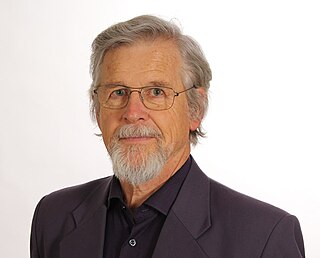
Cultural imperialism comprises the cultural dimensions of imperialism. The word "imperialism" describes practices in which a country engages culture to create and maintain unequal social and economic relationships among social groups. Cultural imperialism often uses wealth, media power and violence to implement the system of cultural hegemony that legitimizes imperialism.

An encyclopedia or encyclopaedia is a reference work or compendium providing summaries of knowledge, either general or special, in a particular field or discipline. Encyclopedias are divided into articles or entries that are arranged alphabetically by article name or by thematic categories, or else are hyperlinked and searchable. Encyclopedia entries are longer and more detailed than those in most dictionaries. Generally speaking, encyclopedia articles focus on factual information concerning the subject named in the article's title; this is unlike dictionary entries, which focus on linguistic information about words, such as their etymology, meaning, pronunciation, use, and grammatical forms.
International English is the concept of using the English language as a global means of communication similar to an international auxiliary language, and often refers to the movement towards an international standard for the language. Related and sometimes synonymous terms include: Global English, World English, Common English, Continental English, General English, and Engas. Sometimes, these terms refer to the actuality of the situation, where English is spoken and used in numerous dialects around the world. These terms may acknowledge the diversity and varieties of English spoken throughout the world.
Linguistic imperialism or language imperialism is occasionally defined as "the transfer of a dominant language to other people". This language "transfer" comes about because of imperialism. The transfer is considered to be a sign of power; traditionally military power but also, in the modern world, economic power. Aspects of the dominant culture are usually transferred along with the language. In spatial terms, indigenous languages are employed in the function of official (state) languages in Eurasia, while only non-indigenous imperial (European) languages in the "Rest of the World". In the modern world, linguistic imperialism may also be considered in the context of international development, affecting the standard by which organizations like the International Monetary Fund and the World Bank evaluate the trustworthiness and value of structural adjustment loans by virtue of views that are commonly foregrounded in English-language discourse and not neutral.

Robert Henry Lawrence Phillipson is Professor Emeritus in the Department of Management, Society and Communication at Copenhagen Business School in Denmark. He is best known for his seminal work on linguistic imperialism and language policy in Europe.

David Crystal, is a British linguist who works on the linguistics of the English language.
The works of J. R. R. Tolkien have generated a body of research covering many aspects of his fantasy writings. These encompass The Lord of the Rings and The Silmarillion, along with his legendarium that remained unpublished until after his death, and his constructed languages, especially the Elvish languages Quenya and Sindarin. Scholars from different disciplines have examined the linguistic and literary origins of Middle-earth, and have explored many aspects of his writings from Christianity to feminism and race.

In linguistics, language death occurs when a language loses its last native speaker. By extension, language extinction is when the language is no longer known, including by second-language speakers, when it becomes known as an extinct language. A related term is linguicide, the death of a language from natural or political causes, and, rarely, glottophagy, the absorption or replacement of a minor language by a major language.
Robert Malcolm Ward "Bob" Dixon is a Professor of Linguistics in the College of Arts, Society, and Education and The Cairns Institute, James Cook University, Queensland. He is also Deputy Director of The Language and Culture Research Centre at JCU. Doctor of Letters, he was awarded an Honorary Doctor of Letters Honoris Causa by JCU in 2018. Fellow of British Academy; Fellow of the Australian Academy of the Humanities, and Honorary member of the Linguistic Society of America, he is one of three living linguists to be specifically mentioned in The Concise Oxford Dictionary of Linguistics by Peter Matthews (2014).
Lyle Richard Campbell is an American scholar and linguist known for his studies of indigenous American languages, especially those of Central America, and on historical linguistics in general. Campbell is professor emeritus of linguistics at the University of Hawaiʻi at Mānoa.

Language politics is the way language and linguistic differences between peoples are dealt with in the political arena. This could manifest as government recognition, as well as how language is treated in official capacities.
World Englishes is a term for emerging localised or indigenised varieties of English, especially varieties that have developed in territories influenced by the United Kingdom or the United States. The study of World Englishes consists of identifying varieties of English used in diverse sociolinguistic contexts globally and analyzing how sociolinguistic histories, multicultural backgrounds and contexts of function influence the use of English in different regions of the world.
An English-medium education system is one that uses English as the primary medium of instruction—particularly where English is not the mother tongue of students.
Trevor Robert Bryce is an Australian Hittitologist specializing in ancient and classical Near-eastern history. He is semi-retired and lives in Brisbane.
Metageitnia was an Ancient Greek festival held in Athens during the month Metageitnion (August/September) in the honor of Metageitnius Apollo. The month of Metageitnion was named after the festival Metageitnia, which celebrated the migration of Theseus from Melite to Diomeia. The celebration of the festival itself declined over time and was replaced by the Apaturia. The festival evolved into a celebration of migrations, immigrations, departures, and colonizations among the Ionians - Metageitnius Apollo presided over the metoikia.
English as a lingua franca (ELF) is the use of the English language "as a global means of inter-community communication" and can be understood as "any use of English among speakers of different first languages for whom English is the communicative medium of choice and often the only option". ELF is "defined functionally by its use in intercultural communication rather than formally by its reference to native-speaker norms" whereas English as a second or foreign language aims at meeting native speaker norms and gives prominence to native-speaker cultural aspects. While lingua francas have been used for centuries, what makes ELF a novel phenomenon is the extent to which it is used in spoken, written and computer-mediated communication. ELF research focuses on the pragmatics of variation which is manifest in the variable use of the resources of English for a wide range of globalized purposes, in important formal encounters such as business transactions, international diplomacy and conflict resolution, as well as in informal exchanges between international friends.

The historiography of the British Empire refers to the studies, sources, critical methods and interpretations used by scholars to develop a history of the British Empire. Historians and their ideas are the main focus here; specific lands and historical dates and episodes are covered in the article on the British Empire. Scholars have long studied the Empire, looking at the causes for its formation, its relations to the French and other empires, and the kinds of people who became imperialists or anti-imperialists, together with their mindsets. The history of the breakdown of the Empire has attracted scholars of the histories of the United States, the British Raj, and the African colonies. John Darwin (2013) identifies four imperial goals: colonising, civilising, converting, and commerce.

Frank Robert Palmer was a British linguist who was instrumental in the development of the Department of Linguistic Science at the University of Reading.
Athelstan Suresh Canagarajah is a Tamil-born Sri Lankan linguist and currently an Edwin Erle Sparks Professor of Applied linguistics, English, and Asian studies at Pennsylvania State University, where he has been a member of the faculty since 2007. His research covers World Englishes and teaching English to speakers of other languages. He has published works on translingualism, translanguaging, linguistic imperialism, and social and political issues in language education. His book, Translingual Practice: Global Englishes and Cosmopolitan Relations, has won three nationally recognized best book awards.








